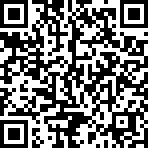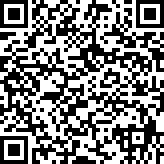 |
Research Article
Predictive role of personality on cyberloafing within the Nigerian civil service and the mediatory role of ethical climate
1 University of Ibadan, Ibadan, Nigeria
2 Kogi State Polytechnic, Lokoja, Nigeria
3 Rivers State University, Port-Harcourt, Nigeria
Address correspondence to:
Omonigho Simon Umukoro
Department of Psychology, University of Ibadan, Ibadan, Oyo State,
Nigeria
Message to Corresponding Author
Article ID: 100015P13OU2019
Access full text article on other devices

Access PDF of article on other devices

How to cite this article
Umukoro OS, Rowland-Aturu AM, Tomoloju OP, Wadi OE. Predictive role of personality on cyberloafing within the Nigerian civil service and the mediatory role of ethical climate. Edorium J Psychol 2019;5:100015P13OU2019.ABSTRACT
Economic evaluations and the cost implications of cyberloafing among employees have generated calls for scholarly attention and empirical-based interventions. This study therefore examined the influence of personality on cyberloafing, and the mediatory effect of ethical climate. The study adopted a cross-sectional survey, with the use of a structured questionnaire. A sample of 696 civil servants from the federal secretariat in Oyo State, Nigeria participated in the study. Data were obtained using a structured questionnaire consisting of Eysenck Personality Inventory (EPI), ethical work climate scale, and an adapted cyberloafing scale. Sociodemographic description of the participants showed that 63% were male with ages ranging from 28 to 56 years (xÌ„ = 42.23, SD = 3.48). Results showed that the introduction of ethical climate dimensions of law and code (β4 = −0.123; p < 0.05) and rules (β4 = −0.110; p < 0.05) accounted for a reduction in the predictive strength of extraversion on cyberloafing (β1 = 0.290; p < 0.01: β4 = 0.076; p < 0.05). This is consistent with partial mediation. The results obtained in this study imply that it is necessary for management of organizations to formulate and implement specific policies aimed at reducing cyberloafing by restructuring ethical elements in the workplace to boost commitment toward professional and organizational ethics.
Keywords: Cyberloafing, Ethical climate, Nigerian civil service, Personality
SUPPORTING INFORMATION
Author Contributions
Omonigho Simon Umukoro - Substantial contributions to conception and design, Acquisition of data, Analysis of data, Interpretation of data, Drafting the article, Revising it critically for important intellectual content, Final approval of the version to be published
Abigail Modupe Rowland-Aturu - Analysis of data, Revising it critically for important intellectual content, Final approval of the version to be published
Olubiyi Peter Tomoloju - Substantial contributions to conception and design, Acquisition of data, Analysis of data, Revising it critically for important intellectual content, Final approval of the version to be published
Oghenetega Elizabeth Wadi - Acquisition of data, Revising it critically for important intellectual content, Final approval of the version to be published
Guaranter of SubmissionThe corresponding author is the guarantor of submission.
Source of SupportNone
Consent StatementWritten informed consent was obtained from the patient for publication of this article.
Data AvailabilityAll relevant data are within the paper and its Supporting Information files.
Conflict of InterestAuthors declare no conflict of interest.
Copyright© 2019 Omonigho Simon Umukoro et al. This article is distributed under the terms of Creative Commons Attribution License which permits unrestricted use, distribution and reproduction in any medium provided the original author(s) and original publisher are properly credited. Please see the copyright policy on the journal website for more information.



